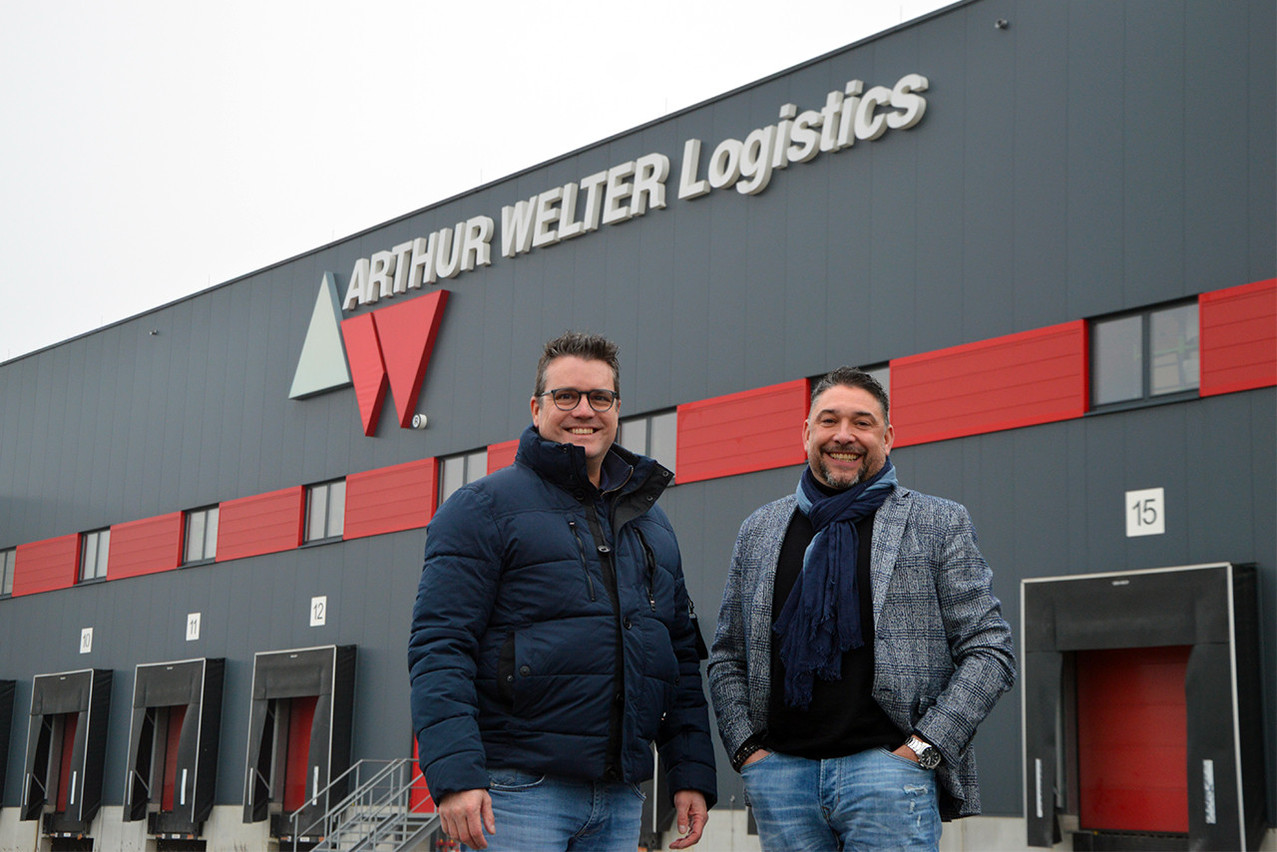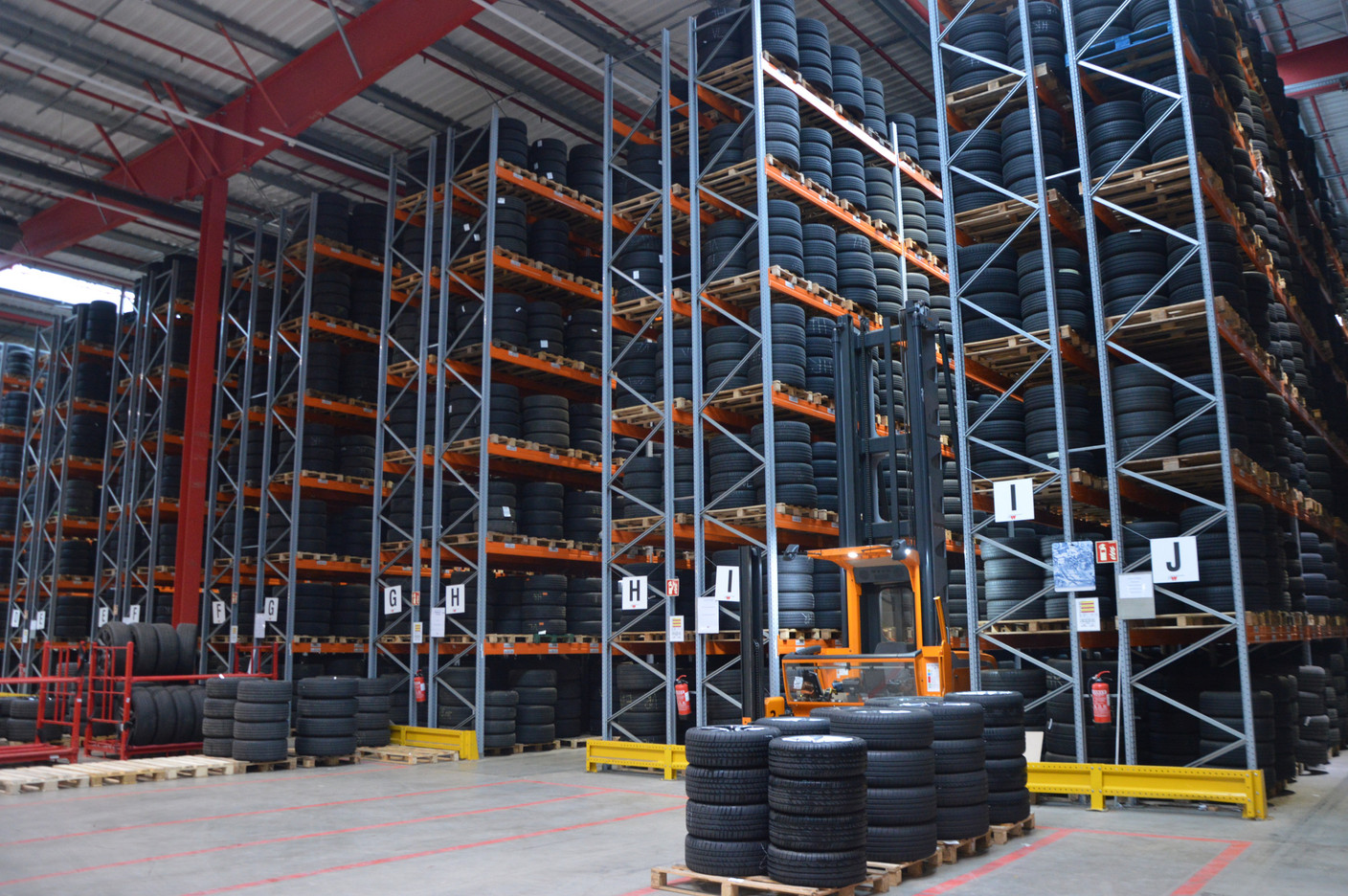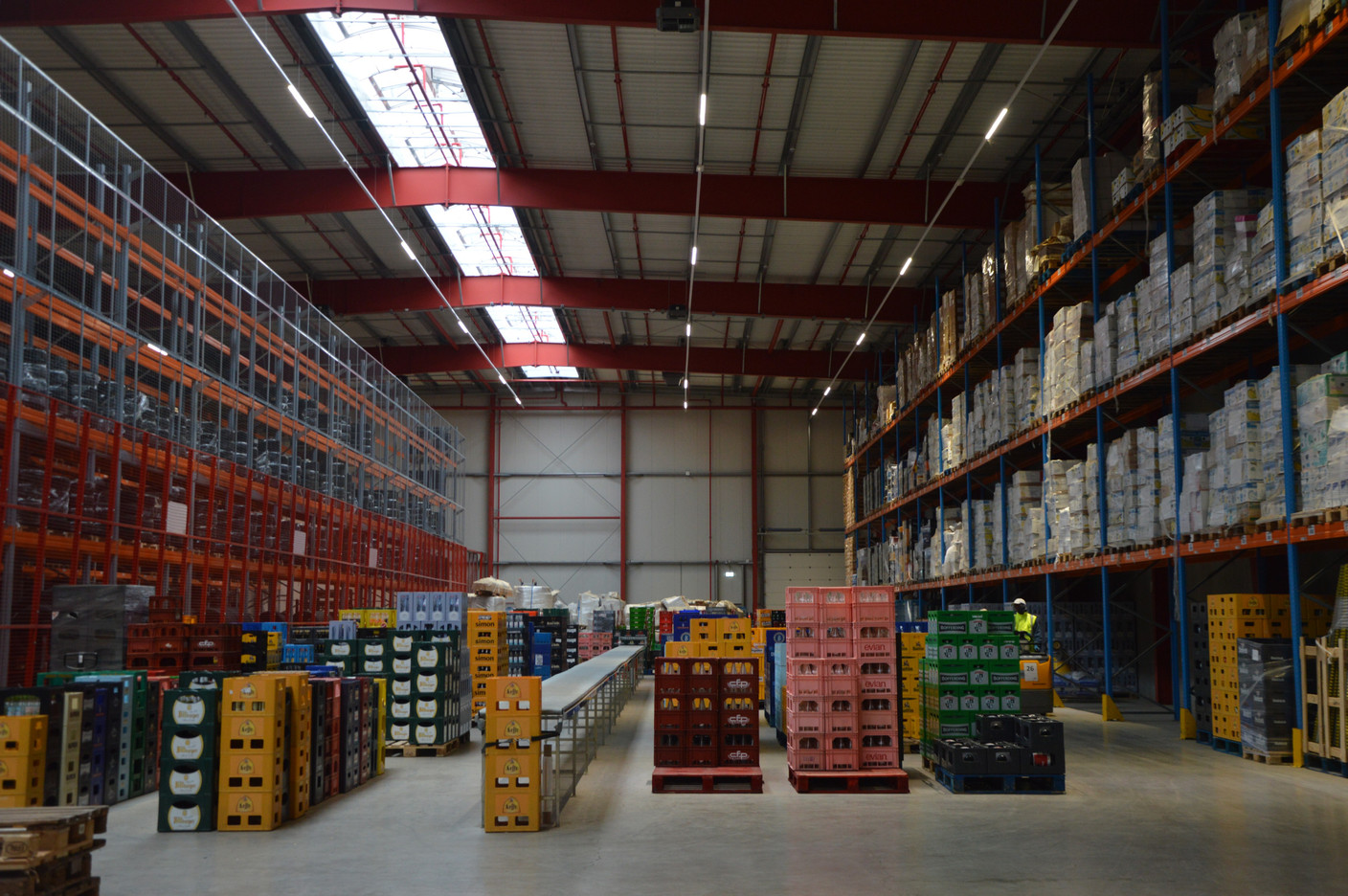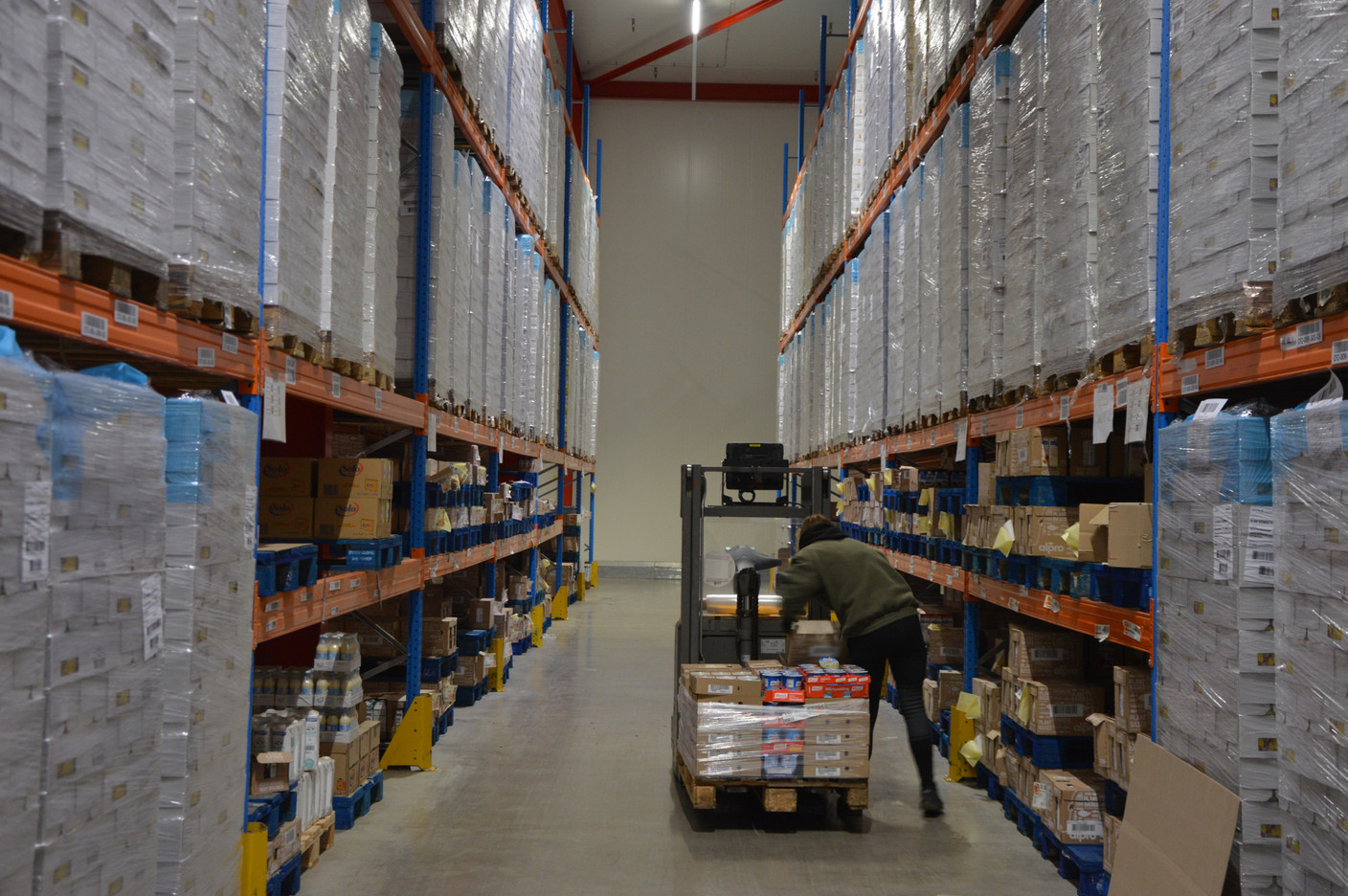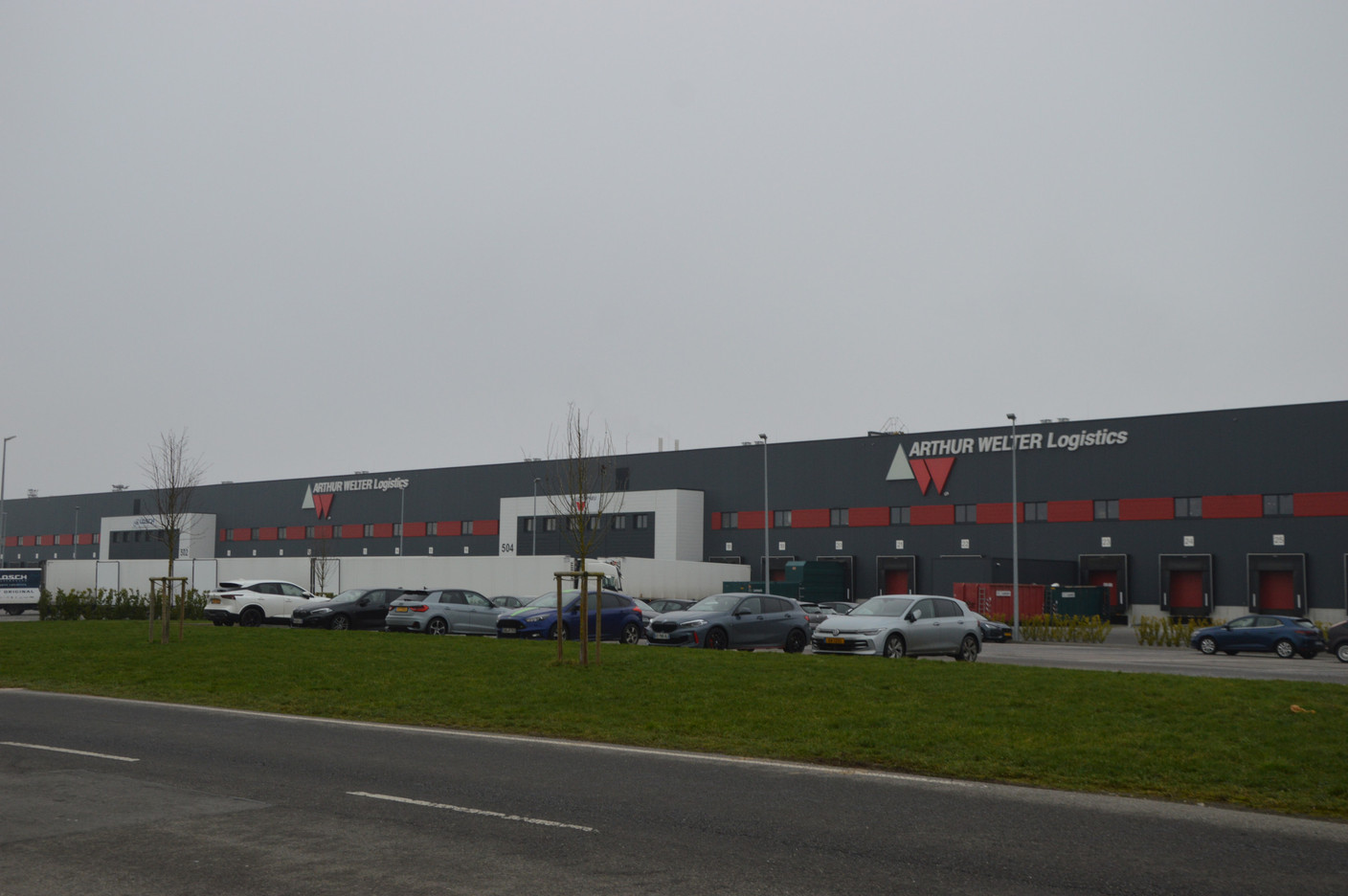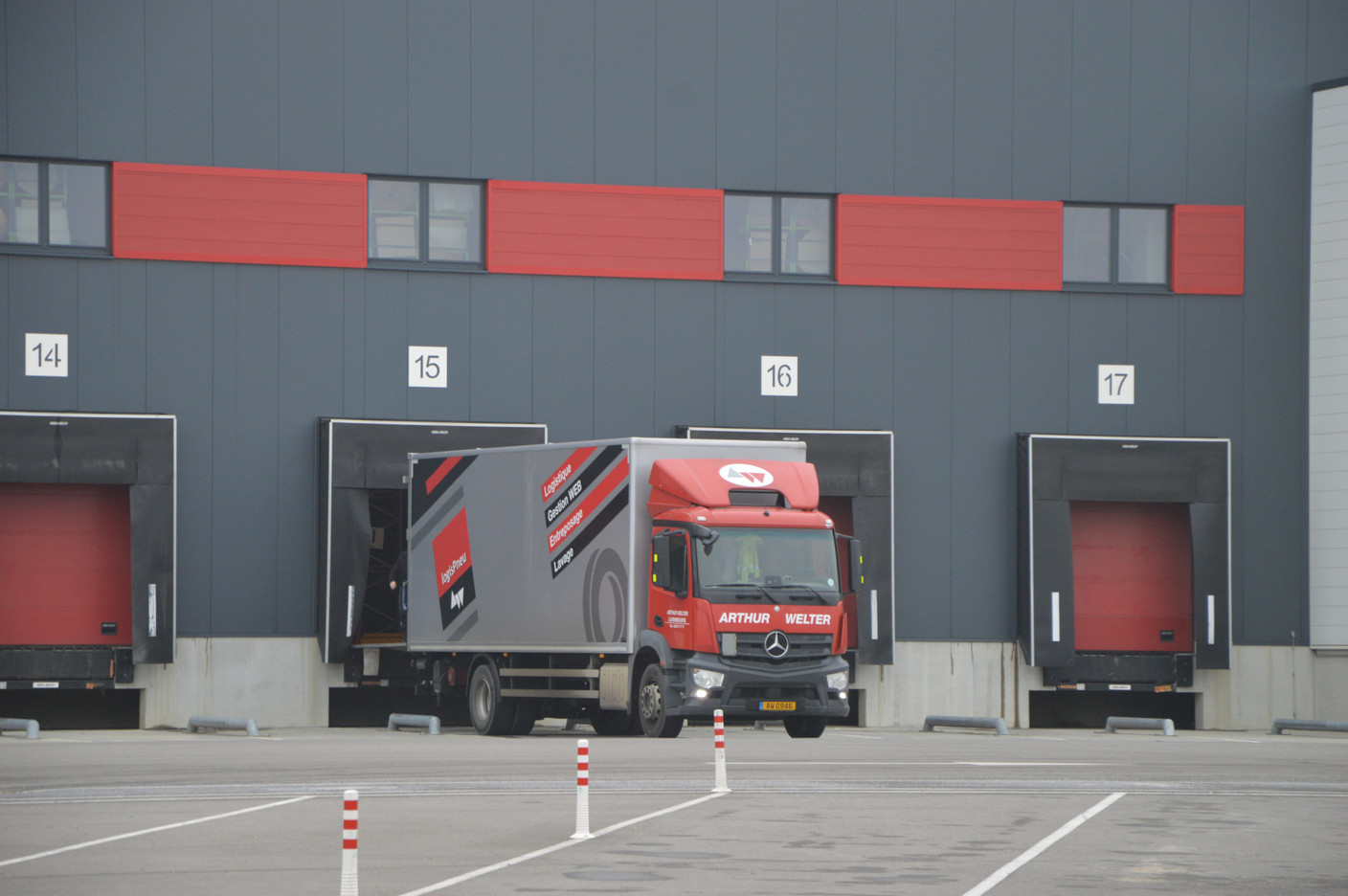To our readers: the Paperjam editorial team was in Dudelange on Thursday and Friday to meet the political, social and economic players in this municipality of 22,000 inhabitants. This article is part of special series.
In the transport and logistics sector, which is sensitive to fluctuations in the economic environment, "companies that have been able to diversify are those that are doing best", Antoine Ries, Federation manager of the transport group at the Luxembourg Confederation, recently explained to Paperjam. Arthur Welter is a case in point.
At global level, this diversification has become a "stability factor" according to its chief financial officer, Ben Frin. "In logistics, we are less subject to volatility than in transport, which is our traditional business. Dudelange 2 [a new warehouse with an additional 10,000m2, completed in 2022] is Arthur Welter's youngest business", he said during an interview. Logistics now accounts for 10% to 12% of the family business's turnover.
Today, it has two large warehouses at the Eurohub in Dudelange, but has kept its Leudelange site for its internal logistics. Here, 75 employees work every day in groupage, distribution and warehousing (including cold storage), as well as in Logispneu, which stores and cleans wheels and tyres for garages throughout the country.
"It's a bit like our tyre hotel," jokes chief logistic officer Renaud Brassart. Originally from Belgium, he joined the company five years ago and has made a considerable contribution to the success of the logistics branch, for which he is banking on added value and flexibility, as well as a diversity of expertise and customers.
In the first warehouse, which is divided into three independent but connected areas, alongside the "tyre hotel", another area is sublet to a customer, a local dealer, who stores spare parts there.
Another space houses the distribution centre for a major supermarket chain. A computerised system ensures optimum management of the rotation of consumer products and dry goods stored in racks several metres high. Arthur Welter also handles the storage and logistics of fresh produce in another dedicated, modular area. "Here we handle around 260,000 parcels a month for fresh produce, 70,000 for dry goods and around 50,000 for empties", said Brassart.
Food products account for 50% of the company's logistics business, and it also offers a waste processing and bottle emptying service. "Dudelange represents a total of 35,000m2. We do kitting [building kits, especially for solar panels], inventory management and assembly. Now we're doing micro-production and quality control. We've developed all that here", Brassart stated.
Added value for differentiation
Tailor-made solutions add value for the customer and enable Arthur Welter to stand out from the crowd. This strategy is even clearer in Dudelange 2, the company's second warehouse in the Eurohub logistics centre. 10,000m2 divided into two equal cells are used for 17 customers representing six sectors of activity (50% food, 20% sports, 15% spare parts, 5% textiles, 5% packaging, 5% industry).
For a clothing brand for which it handles worldwide distribution, the company also offers a labelling and packaging service. For a pet food company, it provides packaging to customer specifications. Other products include solar panel kits, rolls of cling film, spare parts for agricultural machinery, alcohol, cosmetics packaging, etc.
"The challenge now is to find customers who won't add to our costs. For example, if the activity of a new customer requires us to recruit, we have to recalculate the price", explained the head of logistics. In 2024, the logistics business gained 13 new customers and has no intention of stopping there. "We're getting better and better placed in the market. My idea for tomorrow is really to try and develop all the value-added services to set us apart even further. We can imagine a new area dedicated to production machines, because that's logistics too.”
Managing constraints
Faced with the multiple challenges affecting its sector today, whether in terms of transport or logistics, Arthur Welter is counting on the solidity of its model. In terms of human resources, it relies on the versatility of its employees and is proud of its relatively low absenteeism rate of 3.2%, despite the fact that this is often a challenge for many employers. Unlike transport, logistics is less affected by the 'loss of interest in the profession'," said Brassart.
And as far as the transport business is concerned, the company has mixed feelings about the shortage of drivers reported by its competitors. "In reality, we have enough drivers, but these days we have much less choice. Before, we could choose the drivers with the best experience, but now we have to take what we can find on the market. Young people don't really like the work, so if you take on a young person who doesn't have the experience and doesn't really want to do it, it doesn't work. Then, if you hire drivers from Eastern Europe, there can be a language barrier," commented Frin. Not to mention other external constraints.
at the Fedil New Year's address a few days ago: regulation. Frin cited "the 25% social security rule". More specifically, this is a regulation on the coordination of social security systems, under which cross-border drivers who work more than 25% in their country of residence are subject to that country's legislation and must be affiliated to it for social security purposes.
“We are still managing to adapt to this,” Frin said. “But then there are the environmental regulations, such as the CO2 tax. We find this unfair because, in reality, we don't really have a choice. Our will is there, and we prove it every chance we get. In fact, we operate the world's only hydrogen-powered truck for air freight with Cargolux. It's worth noting that integrating such a vehicle into our fleet took just over a year of planning. Our fleet in France already runs on biofuels [the company has 13 Oleo B100 trucks that run on vegetable oil]. Our warehouses are covered with and we are going to launch tests with battery-powered trucks. But we can't expect to transfer half our fleet to CO2 neutrality tomorrow. It's not possible, and that's also because the infrastructure is still lacking, even though it's being developed.”
And what about tomorrow?
Committed to a greener transformation, the family business is also embarking on the path of digital transformation, taking into account both the benefits and the realities. Brassart stated: “We're thinking about automating our processes in the field and digitalising our administration. I think that in 20 years' time, our logistics warehouse will have drones for inventory checks. This already exists in some factories that handle their own logistics. But this is much more feasible for these companies. They can even have automated warehouses, because their production is always more or less the same.”
Processes that are more difficult to reconcile with the flexibility that Arthur Welter strives for. However, it is clear that in the face of "a 33% increase in the minimum wage in ten years", mechanisation and robotisation will be crucial issues for logistics companies if they are to remain competitive.
Another "subject" that will keep the company busy in the coming years is the arrival of the third generation, now headed by , the founder's daughters. "In a family business, it is also the responsibility of the directors to contribute to the successful integration of the new generation," stressed Brassart.
Read the original French-language version of this news report /
